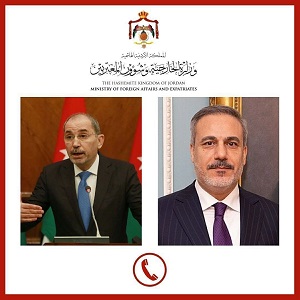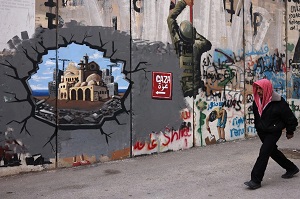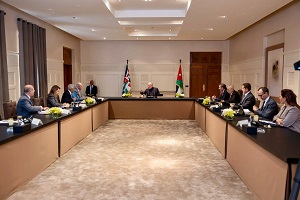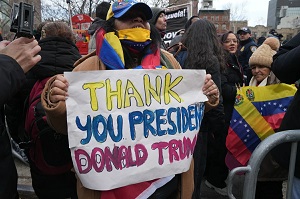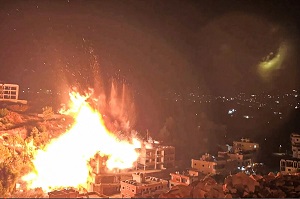The Mullahs’ Losing Game - By Amir Taheri, Asharq Al-Awsat
When popular protests erupted in Iran’s top 100 cities, including the capital Tehran, last month, it soon became clear that the ruling elites were at pains to decide what was really going on.
The faction led by “Supreme Guide” Ali Khamenei started by dismissing the uprising as a déjà vu version of the protests that have punctuated Iran’s history since the 1979 revolution. The daily Kayhan, reputed to reflect Khamenei’s views, dismissed the uprising as “sporadic disturbances fomented by a handful of hooligans.” Khamenei himself saw it as “a bump on the road” to the “Great New Islamic Civilization” he says he is building.
The official media dismissed what it claimed was “a blind riot with no leadership.”
Pro-regime voices in the West mocked the whole thing as “a storm in the twitter cup” and pontificated that a few exiles campaigning for human rights would never be able to provide the leadership needed for a serious challenge to the Iranian government.
The remnants of the “reform seeking” faction tried to label the uprising as nothing but a protest against the tripling of the price of petrol.
Pro-Tehran lobbies abroad tried to promote a third version, claiming that while “hooligans” were leading the protests, the mass of the people who followed had no political grievances against the regime. They insisted that President Hassan Rouhani was trying to raise revenues to keep the ship of state afloat.
Almost no one in the ruling establishment bothered to ask why so many Iranians were prepared to risk their lives to make their voices heard and what could the regime do to address their grievances.
After initial hesitations the elite regained its unity by responding in the best, not to say the only way, it knows best, that is to say a brutal crackdown that claimed hundreds of lives and over 10,000 arrests.
The switch in approach to the uprising meant a change of narrative.
The “hooligans” were rebranded as “trained combatants armed by foreign powers” sent to turn Iran into “another Syria.” Khamenei’s top military aide, Major-General Hussein Salami, pushed hyperbole to the limit by claiming that Iran faced “a veritable world war.”
The claim that the uprising had no leadership was abandoned.
Khamenei asserted that “the evil Pahlavi family” was leading the riots with the People’s Mujahedin, or in his words Munafeqin, in tandem. The Khomeinist propaganda machine generated a new narrative: The Islamic Republic had faced an epic challenge, and succeeded in crushing it without the slightest concession let alone re-casting any of its domestic and foreign policies.
Nevertheless, although medium-term effects of the uprisings remain subject to speculation, its immediate result is already visible in a multifaceted retreat by the Khomeinist elite.
The first facet of that retreat is ideological.
Suddenly, all talk of conquering the world and creating the “Great New Islamic Civilization” is consigned to oblivion.
In an unusual speech, Khamenei spelled out the new gospel: “If Iranians wish to preserve their good life and security,” they should stick to the Islamic Republic.
Rouhani had said that around 70 percent of Iranians live in poverty while the remaining 30 percent “enjoy a prosperous life.” Now, Khamenei was making it clear that he looks to the “prosperous” 30 percent for support in keeping his regime. In his time, Khomeini had claimed that his revolution was for the “mass of the poor” which he designated with the term “dispossessed” (mustadhafin in Arabic and Persian.) Now Khamenei was saying that the term had been misunderstood.
Last week, Khamenei claimed in a fatwa, “The term dispossessed has been misinterpreted as poor and vulnerable people.” He added: “That is not correct; the dispossessed means the imams and the leaders of humanity.” Khamenei’s argument is that the 12 Imams, and by extension the clerics who are their heirs, have been dispossessed of their right to rule the world. Thus, when it comes to worldly affairs, the Islamic regime is not meant to help the poor and the vulnerable but to protect the “security and prosperity” of those who enjoy those blessings.
Translated into simple terms, Khamenei is calling on the “prosperous 30 percent” not to take their current well-being for granted and help the regime crush the mass of the poor who wish to upset the apple cart.
The revolution against the Shah was started, manned and led by middle classes that had emerged in his reign. The “ordinary masses” that is to say urban workers and peasants who might have fitted the term “dispossessed”, remained loyal to the Shah almost to the very end. The Shah wrongly believed that the newly created and increasingly prosperous urban middle classes would never challenge his regime. He feared a Communist-style revolution based on a workers-peasants alliance of the type Lenin or Mao Zedong imagined but never experienced.
The Shah thought that by giving land to peasants and granting workers a share in the profits of companies he would prevent such a revolution. He ignored the fact that the peasants who became landowners, albeit on small-scale, used their title deeds as collateral, to enter the capital market and within a generation joined the middle classes. Something similar happened to the top bracket of urban workers who invested their share of the profits to reach a middle class status.
Now we know that the Shah never faced any danger from the mass of the poor.
The danger to his regime came from urban middle classes that in any society do not remain content with economic prosperity and social freedoms for long; they always end up demanding political rights commensurate with their economic and social status. The best symbol of modern urban middle classes, or the bourgeoisie as the Marxists like to say, is Charles Dickens’ Oliver Twist who, the more he gets, the more he asks for.
Is Khamenei making a similar mistake albeit for different reasons?
The 30 percent he is counting on may remain loyal as long as he is able to keep the 70 percent “unhappy ones” on a tight leash. However, if he manages to crush the 70 percent, thus removing their threat, he would face the 30 percent’s increasing demands for social and political freedoms no clerical regime can grant. And, if he fails, the 30 percent in question will look for someone else who can do for them what the Khomeinist regime cannot. In either case, the “Supreme Guide” is playing a losing game.
